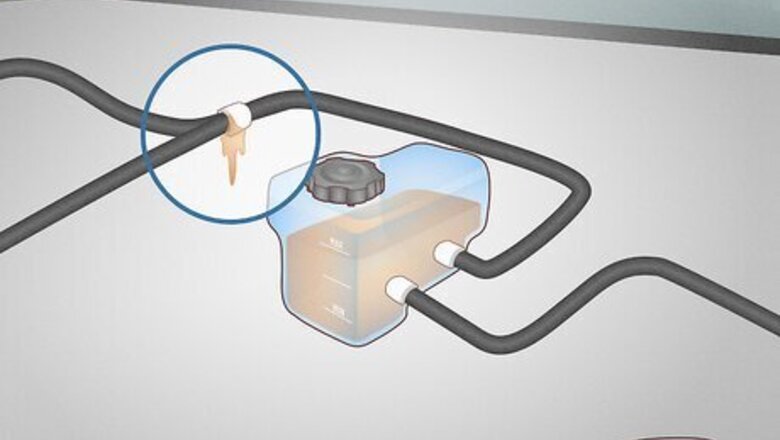
views
10 Common Causes of Overheating
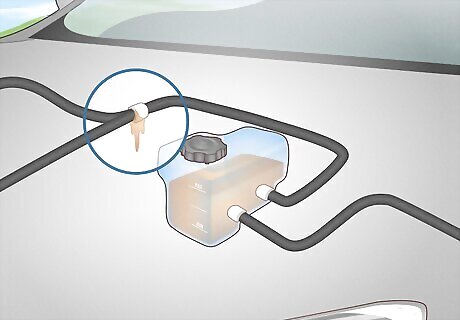
Cooling system leaks If your cooling system is leaking, that means there isn't enough coolant circulating through your engine to help it maintain the correct temperature. Leaks are probably the most common reason for a car to overheat. Fix this by: Adding coolant. Just keep in mind that you'll continue to have issues with your car overheating until you take it to a mechanic and have them find and repair the leak.
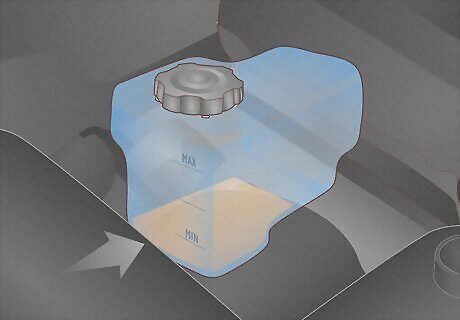
Coolant concentration or level If your cooling system doesn't have the correct concentration of coolant and water, it can gunk up your system and cause less coolant to circulate. This is also likely if the coolant level is lower than it should be for any reason. Fix this by: Adding coolant. Make sure there's not a leak and take your car to a mechanic as soon as possible to get a full coolant system flush.
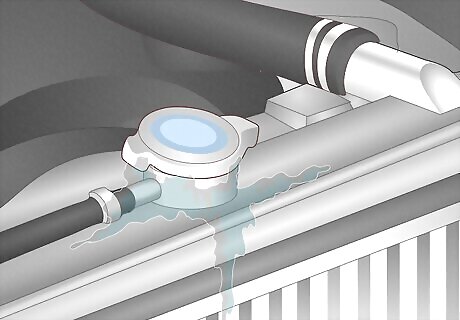
Radiator issues The radiator is a key part of your cooling system so any problem with it can potentially cause your car to overheat. Different parts of the radiator, including the fan and the cap, can go bad because of general wear and tear. When this happens, there won't be enough coolant circulating through your engine and it can overheat as a result. Fix this by: Taking your car to a mechanic to get the radiator or its parts repaired or replaced.
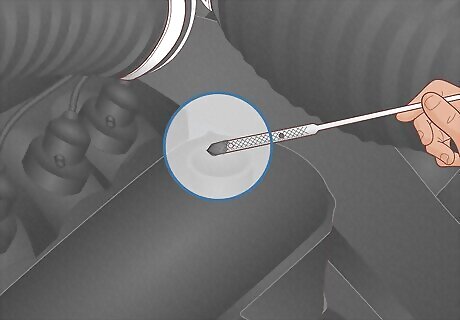
Low oil level When your engine is low on oil, its parts aren't getting as much lubrication. As a result, there will be more friction, which causes the parts to heat up and the engine to run hotter. Fix this by: Topping off your oil. Schedule an oil change as soon as possible and check for leaks that might be causing the low oil levels.
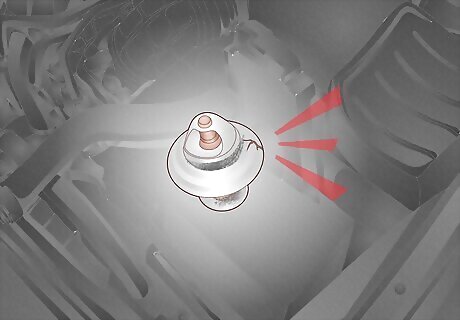
Faulty thermostat The thermostat helps regulate the operating temperature of your engine. When it goes bad, it won't allow coolant to circulate through the engine, which can result in the car overheating. Fix this by: Taking your car to a mechanic and having the thermostat replaced.
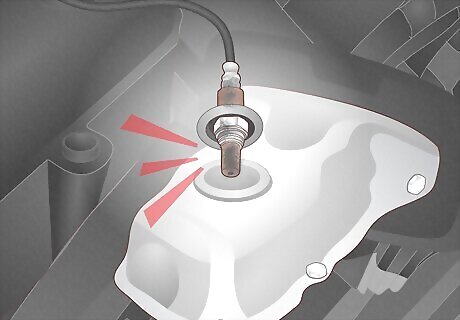
Faulty oxygen sensor The oxygen sensor is technically part of your car's emissions system. But when it goes bad, unburned fuel reaching your catalytic converter can cause an overheating problem. If your oxygen sensor goes bad, it's likely that your "check engine" light will also be on. Fix this by: Taking your car to a mechanic and having the oxygen sensor replaced.
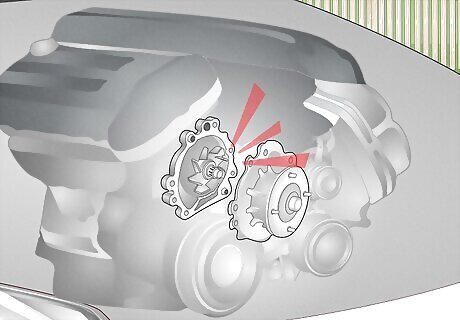
Faulty water pump The water pump cycles coolant from your radiator to your engine and is one of the most essential parts of your engine's cooling system. If the water pump goes bad, the coolant won't circulate through your engine at all and it will likely overheat pretty quickly, especially if you're driving in hot weather. Fix this by: Taking your car to a mechanic and having the water pump replaced.
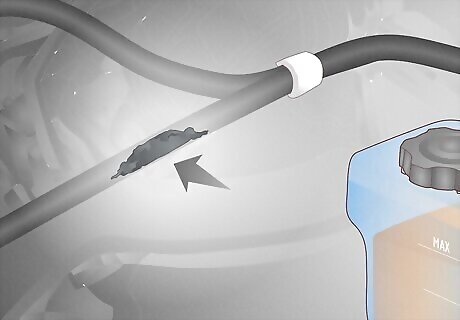
Clogged or cracked hoses If a crack in a hose causes coolant to leak, there won't be as much coolant actually reaching your engine, resulting in overheating. A clogged hose, which typically happens because you have the wrong concentration of coolant in your car, causes a similar result. Fix this by: Finding the source of the problem and patching or replacing the hose as needed. Adding coolant is a very temporary solution, depending on the size of the crack in the hose.
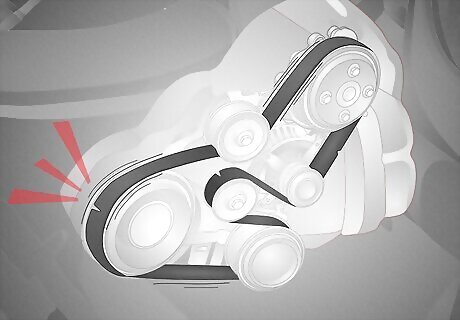
Loose or broken belts A loose or broken belt can increase the friction in your engine, causing it to run at a higher temperature and potentially overheat. If you have a loose or broken belt, you'll probably also hear a repetitive noise coming from the engine compartment along with the symptom of overheating. Fix this by: Finding the problem belt and tightening it or replacing it as needed.
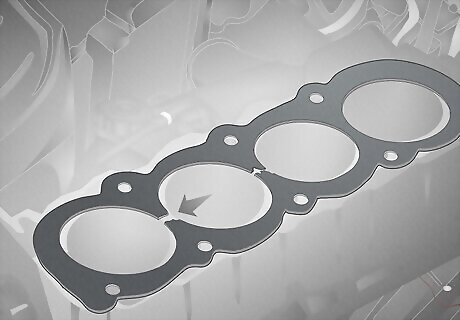
Cracked or blown head gasket The head gasket keeps the oil and coolant circulating in your engine from mixing together and also keeps the combustion gases from getting into your cooling system. Problems here will likely result in your car overheating. Fix this by: Taking your car to a mechanic and having the head gasket replaced.
What to Do if Your Car Is Overheating
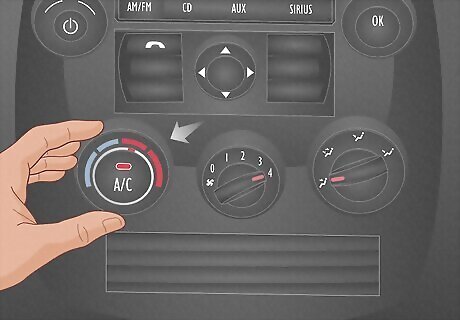
Turn on the heat with the fan on high. If you have the air conditioning on, turn it off immediately—running the air conditioner actually causes the engine to run hotter. In contrast, turning on the heat will help pull heat away from the engine to cool it down. Make sure the fan is turned up as high as it can go so this will work a little more quickly. If you're driving on a hot day, this will likely be extremely uncomfortable—but a few minutes of being uncomfortable is better than seriously damaging your car by continuing to drive it with the A/C on while it's overheating.
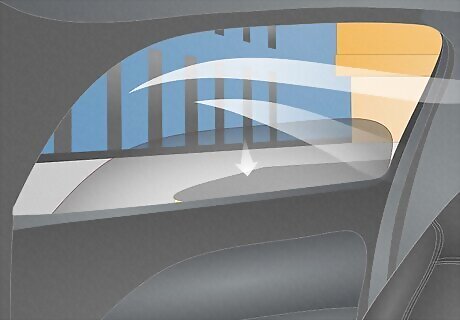
Roll all of your windows down. Rolling your windows down will help you be a little more comfortable if you're still driving the car with the heat on—but that's not the only reason you want to roll your windows down. Doing so will increase the airflow and pull the hot air out of the car, including the hot air around your engine. This should help bring the engine's temperature down a little faster.
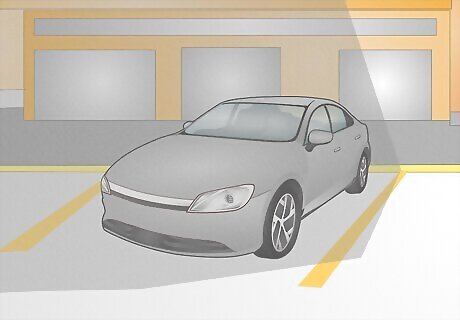
Pull over as soon as possible and park in the shade. If your car is overheating, don't drive it any further than necessary. Find a safe, shady place to park and turn the car off to allow the engine to cool down. If you have to continue driving to get to a point where it's safe to pull off, automotive expert Ed Beery recommends that you "reduce RPMs as much as possible. The reduced load helps the engine work less. It may help to keep the vehicle rolling and avoid sitting in traffic if possible. The airflow through the radiator is increased when the vehicle is moving. Just don't drive too quickly with high RPMs." Beery further notes that "overheating is the main cause of catastrophic engine damage. If your engine overheats, shut off the engine as soon as safely possible." It's tempting to open the hood to signal distress and help cool the engine down more, but don't do it! The hood is likely extremely hot because your car was overheating and could seriously burn you.
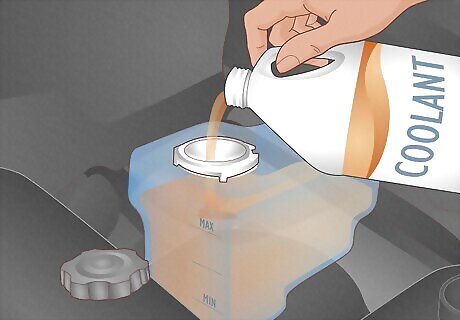
Add coolant after your engine has cooled down. Wait at least 10 to 15 minutes to give your car a chance to cool down enough that you can lift the hood. Locate your coolant reservoir (you can check your car's manual if you're not sure exactly where it is) and add coolant and water. You might also use the water to cool down the radiator, but be careful! Your engine block may crack if it cools down too quickly, and that is not an inexpensive repair. Use this time to come up with a plan—you'll likely need to get your car towed to a mechanic and you'll need to figure out which mechanic you want to take it to.
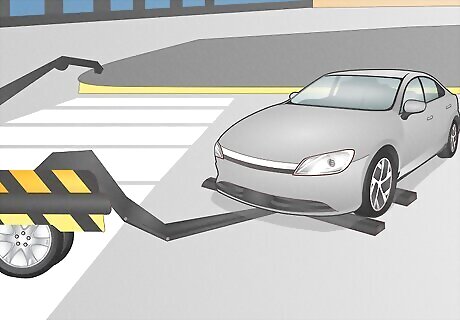
Call a tow truck to take your car to a mechanic. If your car has cooled down sufficiently and the coolant level is okay, it might be possible for you to drive it to the mechanic yourself—but it's usually best not to risk this. A tow truck is your best option to ensure that your car doesn't overheat again and that your engine isn't damaged any further.
Preventing Your Car from Overheating
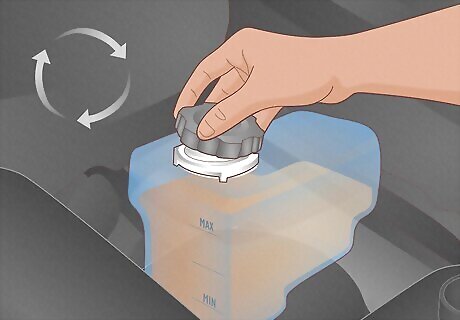
Check your coolant levels on a regular basis. You can typically check the coolant levels with a quick glance at the reservoir, which is usually marked with lines for coolant and water. If it's low, go ahead and top it off as needed—but watch out for potential leaks that could be causing you to lose coolant. Automotive expert Ed Beery cautions that you should "check coolant with the engine cool and the vehicle on a flat surface." It's a good idea to check your coolant levels at least once a month, but you might want to check more often depending on how much you drive and how hot it is. You also want to check immediately after any long trips, especially if you were driving during the summer months. Beery adds that you should "ensure the coolant in the vehicle meets the manufacturer's recommendations." You'll find this information in your owner's manual.
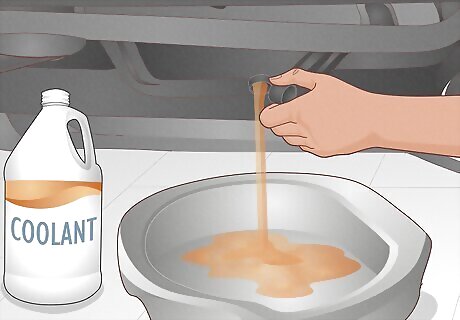
Get your coolant system flushed when recommended. Check your car's owner's manual to find out when your car's manufacturer recommends getting your coolant system flushed. You might set a reminder on your phone so you don't forget when it's time. If you have a relatively new car that you're still getting serviced at the dealer, they'll likely have coolant flushes included as part of the regularly scheduled maintenance and will likely alert you when it's time—just don't skip them!
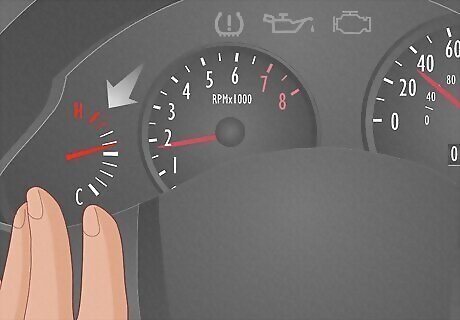
Watch the thermostat as you're driving. This is especially important on hot days or when you're driving for long distances. If it starts to creep up, pull off to a shady spot and let your car cool down for a bit before driving further. You might also check your coolant levels just to make sure you don't have to top it off. Automotive expert Ed Beery notes that you should also "pay attention to changes in the heating system of your vehicle. If the vehicle's heating begins to change, have the system inspected soon. The heating system on your vehicle is tied to the cooling system [and] the heater working differently is a sign of problems in the cooling system.
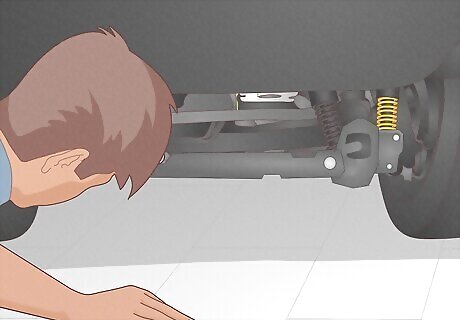
Check under your car for leaks periodically. If you have a burst hose, you'll likely see spotting or even a puddle of coolant under your car. That alerts you that there's a leak somewhere that you need to get fixed before your car overheats. Automotive expert Ed Beery advises that you "repair the cause of [any] leaks before they lead to an overheat condition."
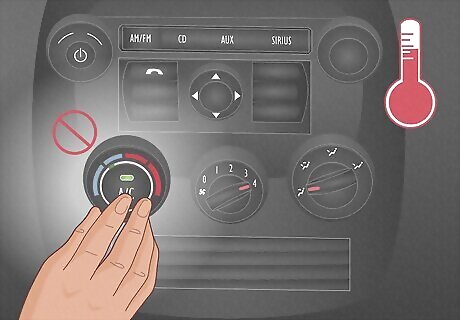
Avoid over-using the air-conditioning if it's hot outside. The operating conditions of your vehicle also affect its tendency to overheat. If you're driving in extremely hot temperatures, over-using the air-conditioning can cause your engine to work harder and potentially overheat. Keep the interior of your car slightly warm and roll down the windows rather than running the A/C when it's feasible to do so. Taking frequent breaks when it's hot outside and letting your car cool down is also helpful, especially if you're driving long distances.
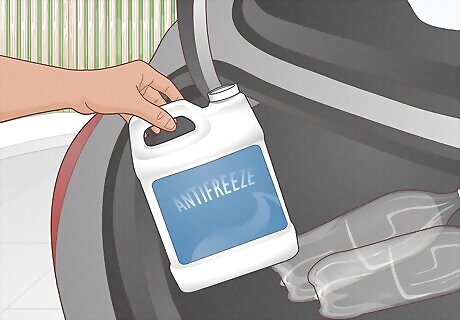
Keep antifreeze and water in the trunk of your car. You can't always guarantee that you'll be near an auto shop or gas station when your car overheats. Keeping a fresh bottle of antifreeze and a gallon of water in your trunk is a good habit—especially if your car is prone to overheating or has overheated in the past. Make sure you get the type of antifreeze recommended by your car's manufacturer. Your car's owner's manual will have this information.




















Comments
0 comment